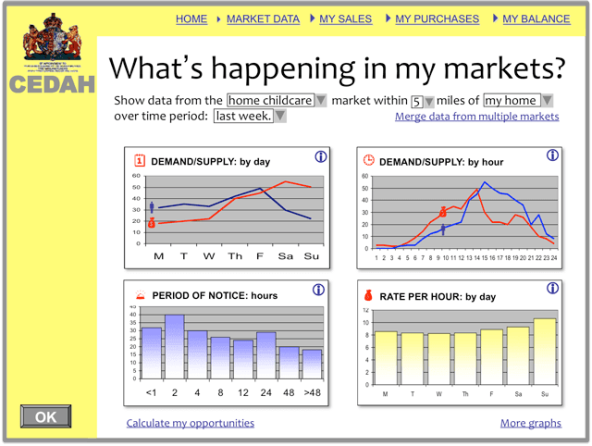“We are starting campaigns to push back against entrenched interests,” claims Peers, an advocacy group founded last July to promote sharing of citizens’ resources, typically through online marketplaces. The organization’s campaigns are likely to worsen an emerging headache for governments across the developed world.
To understand why, put yourself in the position of one of those “entrenched interests.” Imagine you run a small guesthouse. In the last couple of years, you have noticed an alarming rise in the number of local people renting out their sofas and spare rooms to overnight tourists on Airbnb.
Your new competition may not abide by regulations (on use of buildings, for example), probably doesn’t pay tax on bookings, and gains competitive advantage by having virtually no overhead. And there’s the bind for policymakers. Crack down on this popular new economic activity? Or ignore outrage from regulated, tax-paying, job-creating businesses?
 Policymakers are under pressure to curtail sharing economy websites.
Policymakers are under pressure to curtail sharing economy websites.
Governments have ducked this issue in previous cycles of e-commerce. When Amazon was a daring upstart, putting millions of books a click away, it largely evaded sales tax by not having brick-and-mortar shops, placing warehouses in states with low sales taxes, and other means. Only when thousands of bookstores had disappeared did lawmakers update retail regulations.
Are you enjoying this article? Read more like this, plus SSIR's full archive of content, when you subscribe.
It’s possible that governments will also allow the Peers group businesses to operate using a model that has significant advantages over existing businesses. It’s equally possible that more governments will back their hotels and guesthouses. Jurisdictions as varied as Quebec, Madrid, and Roanoke, Va. have already cracked down on Airbnb rentals by residents. New York has subpoenaed the site for details of renters.
But there’s another possibility that could galvanize local economies, and I suspect that many of the web companies backing Peers won’t like it.
I have spent 20 years writing and working at the interface of public policy and online markets, and I am convinced that government is a sleeping giant across the sharing economy. The way to understand this is to see transactions such as hiring out your electric drill, running errands, doing a few hours of employment, or renting beds and parking spaces as one big “horizontal” market. Currently, the market it is comprised of thousands of stand-alone “verticals”—one site to hire your household goods, another for odd bits of work, another for eating in someone’s home, and so on.
These local trades are probably the most complex transactions in our global economy, but they are all complex in the same way. Whether you are renting out a bike for an hour or spending an hour shopping for someone down the street, the item or service you are trading usually has a location, travel distance, hours of availability, and pricing rules.
Individually, these are low-value purchases, but there are potentially hundreds of millions of them every day in a developed economy. If we could cost-effectively aggregate them, all sorts of benefits of scale might emerge. For example, one big marketplace would allow instant purchasing across lots of sectors. Want a weekend away with accommodation, travel, childcare, and activities all provided from the sharing economy? Personalized packages could be constructed and priced in microseconds.
But, what entity has the clout to aggregate these services that make up such a huge part of the economy? The public sector is potentially the biggest single buyer of services that involve flexible labor. It is, directly or indirectly, pivotal to the delivery of very local services such as neighborhood security, health, childcare, and homecare. Government offices, call centers, and public facilities need to flex headcount in line with demand.
Aside from their role as buyer, government bodies run the mechanisms for establishing identities, resolving disputes, and knowing who is licensed to do what. Governments control agencies that promote tourism, spend billions on fostering employment, shape welfare rules, and invest to make local economies more efficient. And at the moment, most governments see their role as creating and supporting traditional jobs.
But suppose we could progressively re-jig government so that it boosts and takes advantage of ad-hoc local transactions? Imagine a database of individuals’ availability times, contact information, and pricing rules, all backed by government facilities in the way that the American Job Center Network has Federal support. It might be called the Central Database of Available Hours (CEDAH). Individuals could list their desire to work odd hours as a cleaner, caregiver, or call center agent on CEDAH, or enter when and on what terms their car, lawn mower, or under-stairs storage space are available for hire.
A very large-scale system used for procurement of public services, directly linked into official databases and promoted by government agencies could take out a lot of the transaction costs, uncertainty, and time-consuming processes currently embedded in the peer economy. It could create new markets that offer advantages derived from official backing, while deducting tax and enforcing regulations.
I am talking about e-markets as a public utility. Of course, government shouldn’t fund, design, or run such an ambitious system. But it could align public spending, official databases, and government promotion with the needs of a universal market for sharing transactions; ensure the most competitive terms for users from companies who build and operate the market; and then get out of the way.
If the public liked the result, and the utility was simply a platform that anyone could incorporate into a web market, we might see an explosion of innovation. There is so much potential for new sharing services. We might see new economic indicators, ground-breaking models for public services, hyper-efficient parallel economies, precision volunteering, atomized investment, and pioneering financial services for ad-hoc earners.
 A mockup of the kind of data users could enjoy from a coordinated official platform.
A mockup of the kind of data users could enjoy from a coordinated official platform.
I realize that this may seem fanciful. The US Heathcare.gov debacle makes it evident that government and innovative IT are not necessarily a winning combination. That’s why government should progressively align itself with the possibilities of micro-transactions but stay out of the way of system operators. Obviously, privacy, neutrality, and transparency of operation would be requisite for any agreement with companies accessing official facilities.
The idea that government might work toward a radical vision for online markets is rooted in history. Potent technologies such as water pumping, electricity, rail, road networks, the telephone, air traffic control, broadcasting, and mobile phone spectrum all went from the fringes to mainstream when public policy adapted—not to the interests of individual pioneers, but to each technology’s long-term potential.
In Victorian times, British politicians wanted a universal, clean water supply. They enacted legislation that allowed the damming of entire valleys to create reservoirs and penalized sewage dumping. Existing water companies howled about state intervention that commoditized their service. But legislation ended up providing regulated, cheap, ubiquitous water for UK citizens. Truly unleashing the peer economy likewise may require government intervention where lawmakers are catalysts, not bogeymen.
Support SSIR’s coverage of cross-sector solutions to global challenges.
Help us further the reach of innovative ideas. Donate today.
Read more stories by Wingham Rowan.

